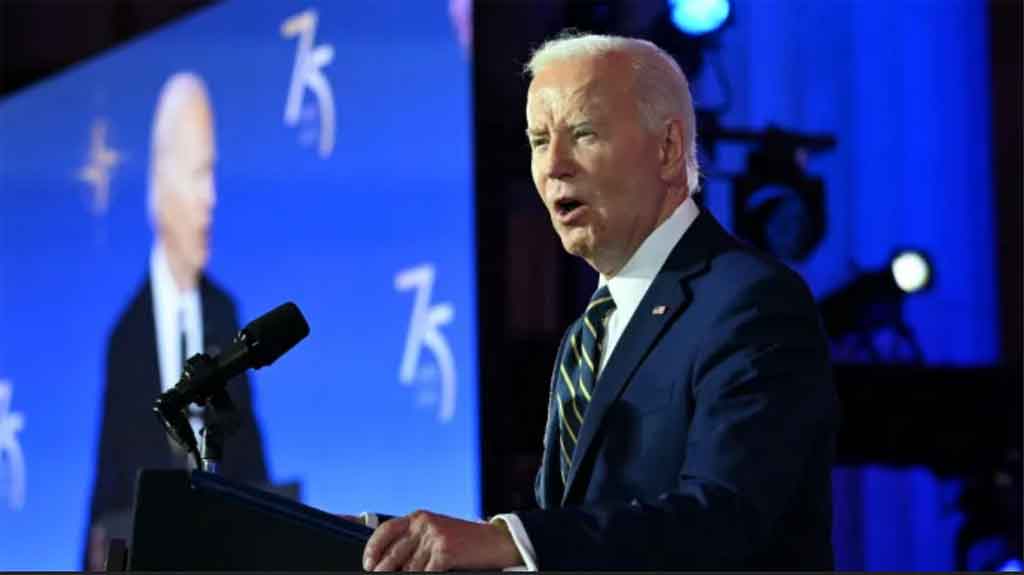But the speech at the W. Mellon Auditorium the day before in this capital had special scrutiny because it occurred while Biden remains under pressure to abandon the electoral race amid questions about his ability to face a second term.
In his speech of about 10 minutes he reiterated what officials from his administration had anticipated in briefings with the press: Ukraine will be the protagonist of the meeting.
Biden announced what he called a “historic donation” of critical new air defense capabilities to bolster Ukraine’s warfighting equipment to confront Russia.
He assured that the European nation will “receive hundreds of additional interceptors over the next year,” a promise of aid that comes at a time when its performance on the world stage is being scrutinized in the face of questions about his political future.
The host president also recognized the outgoing secretary general of the North Atlantic Treaty Organization (NATO), Jens Stoltenberg, whom he thanked for his leadership and honored him with the Presidential Medal of Freedom, the highest United States distinction awarded to a civilian.
In his speech, Biden welcomed the presence of the 38 heads of delegations in Washington DC for this meeting that will conclude tomorrow, which, according to the White House, is historic.
An NPR report said the president’s words were like “music to the ears of allies.”
While others expressed concern about what a United States relationship with NATO would be like in the event of Donald Trump’s eventual victory in the November 5 elections.
Since he began his election campaign, Trump promised that if re-elected he would not defend NATO members that do not meet their defense spending goals.
The former governor (2017-2021) long complained that Washington unfairly bears a disproportionate share of what the members of this association must assume.
Prior to his election in 2016, the Republican more than once questioned the purpose and effectiveness of NATO, which he came to describe as “obsolete.”
So a post-Biden scenario is what former Prime Minister of the Netherlands Mark Rutte, the next Secretary General of NATO as of October 1, would have to face, replacing Stoltenberg, who commanded the alliance since 2014.
Over the weekend, dozens of peace activists participated here in the No to NATO, Yes to Peace Conference and in a demonstration in Lafayette Park, in front of the White House, to express their opposition to this alliance, which, as they expressed, is not welcome.
The protest was attended by several speakers, including German MP Sevim Dağdelen. “NATO and the leading country, the United States, have nothing to do with human rights as long as they do not stop killing people around the world,” she denounced.
For her part, Medea Benjamin, co-founder of CodePink, called for an end to spending taxpayers’ money to finance wars like the one in Ukraine.
NATO was born as a result of the signing of the Washington Treaty on April 4, 1949. For decades, it has supposedly provided security guarantees to the world, but in reality, in the opinion of historians and analysts, it has been one of the destabilizing factors at a global level.
ef/mem/dfm










